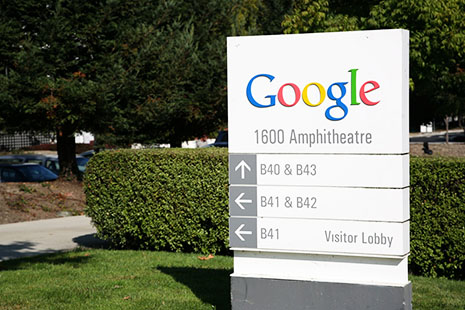IF YOU ARE ONE of the 150 million or so people who use gmail and you’ve checked your account over the past week, you will know that Google has quietly launched its own version of Facebook, a social networking site called Buzz. If you stepped through setting up Buzz in the first few days after its launch then you may be among the many users disgruntled by the fact that Buzz automatically publicised your list of gmail contacts as your “friends,” and automatically uploaded all of your Picasa photos labelled as public. Too bad if you don’t really want the list of everybody you have ever gmailed to be public knowledge. Google responded pretty quickly to the avalanche of complaints and has now changed the default settings.
This recent buzz about Buzz raises an interesting question. Why would Google want to set up a social networking site? Isn’t Facebook completely dominant, and isn’t Google’s main business its search engine and, to a lesser extent, the controversial Google Books project (which, incidentally, has another court hearing scheduled for 18 February)?
Although the Google search engine and Google Books have caused the most public controversy, they are not the core of Google’s business. Google’s core business involves the complementary aims of tracking individuals and putting targeted advertising in front of them as often as possible. Whether you access the internet on a desktop, a laptop or via your mobile phone, you may never have to leave the Googleverse again. While everyone knows that you can keep yourself informed using Google’s search engine to search for information, read or purchase books using Google Books, find out what is happening using Google News, or receive Google Alerts on topics that interest you, did you know you can also receive updates from your favourite blogs using Google’s FeedBurner and browse through your favourite newspapers and magazines using Google’s new FastFlip?
All your social needs are catered for. You can connect with people with similar interests using Google Groups. You can communicate through gmail, or talk and SMS with your friends using Google Talk. You can even collaborate with them using Google Wave. You can hang out with friends using Google’s social networking site Orkut. (Wait a minute, Google already has a social networking site? Although Orkut has been very popular in Brazil and India, it never quite made it big in the west, which is where Buzz comes in – but more on that later.) You can express yourself using Blogger or share tagged photos using Google Picasa. With YouTube and Google videos, why bother turning on the TV? You can do your homework using Google Scholar. You can even be a good citizen using Google Moderator, a recent introduction to the Google suite that lets the public ask questions of policy-makers or politicians and vote on proposed public policies.
Google also takes care of those more mundane aspects of life, allowing you to organise your schedule using Google Calendar, get in-car directions from Google Maps, do your shopping through Google Products, let your friends know what you wish you could buy using Google WishList, and monitor your investments through Google Finance. And although privacy concerns have almost made it impossible for governments to introduce electronic health records, Google has introduced its own version. Currently only available in the United States, Google Health is a repository for all of your medical records, and a way of keeping your health practitioners up to date about your health. And all these services are provided free of charge.
So what is in it for Google? Be assured that Google will not sell or share your email address. It doesn’t need to. Google has near-perfected the art of consumer profiling. By encouraging us to live more of our lives in the Googleverse, Google can access a live feed of our practices, both online and offline. Forget FlyBuys cards, panel surveys, peoplemeters or even the “database of intentions” provided by search terms. Google has trumped all of these piecemeal efforts to find out what appeals to whom. Instead, it’s pioneering a brilliant new business model which I will call “infogration.” Infogration involves the integration of aspects of the world into the medium of digital information. Infogration gives Google information on what we actually do and who we are – our communications, friendships, activities, political concerns, and consumption practices.
It is a win–win situation for Google. Infogration enables the placement of customised ads while at the same time building up the Google database of consumer and citizen profiles: a database not only of what we search for, but of what we buy, what we want, what we care about, who we hang out with, what we talk about, where we go – in the virtual world and the real world – and who we are, both metaphysically, through blogs and communications, and literally, through health and, some predict, genetic information.
So it is no surprise that Google has mounted a challenge to Facebook, a site with more than 400 million active users. The interactive and chattering nature of social networking sites puts them in a particularly good position to work out the characteristics of “influencers,” those who influence the rest of us to buy certain things or think a particular way. This is the holy grail for anyone who wants to successfully sell things or ideas. •




